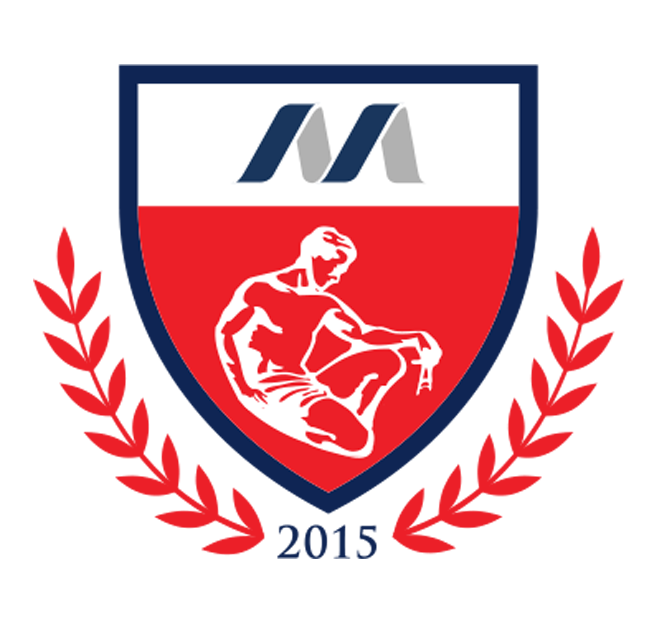Bachelor of Arts in Communication (BAComm)

BA Communication Program Overview
The Bachelor of Arts in Communication program adheres to excellence and relevance and aspires to transform students into proficient communicators who catalyze positive change in society through media. Students undergo a rigorous curriculum that allows them to take a deep dive into the theory and practice of communication through diverse and emerging media platforms.
BA Communication exposes students to various disciplines, including media production, broadcasting, journalism, advertising, and communication research, taught by expert faculty members and media practitioners. Elective courses, research exposure, and internship opportunities enable students to design their own learning experiences based on their personal interests and learning goals.
Mapúa MCM’s learner-centered and outcomes-based communication courses in college actively engage students with current social and political issues, expose them to various forms of arts and culture, and promote a rich learning environment. This prepares students for rewarding careers in the media and allied fields.
BA Communication Program Educational Objectives
The BA Communication program sharpens students’ creativity, critical thinking, and media expertise, producing skilled communicators who excel in diverse professional industries. The program aims to:
- Equip students with theoretical and technical competencies relevant to the practice of ethical and effective communication applicable in various communication or media professions and contexts that can support the industry, academe, government, or community.
- Produce collaborators and innovators in the field, leading or participating in efforts to address social, technical, ethical, and business challenges.
- Engage in life-long learning and professional development.
BA Communication Program Student Outcomes
At the end of the program, graduates of the BA Communication Program will be able to
- Communicate in different formats and platforms (print, broadcast, and online);
- Produce communication plans and materials in different formats for various platforms and purposes;
- Conduct communication/media research and evaluation;
- Adhere to ethical standards, practices, responsibilities, and accountabilities of the communication profession; and
- Apply communication theories/models, principles, practices, and tools in relevant development work.
- Collaborate effectively in multidisciplinary and multicultural teams.
- Effectively communicate orally and in writing using both English and Filipino.
- Preserve and promote “Filipino historical and cultural heritage”.
- Recognize the need for and demonstrate the ability for lifelong learning and service orientation.
- Participate in the generation of new knowledge or in research and development projects and activities.
BA Communication Career Opportunities

Public Relations Specialist

Marketing Coordinator

Journalist

Corporate Communications Officer

Social Media Manager

Advertising Executive
BA Communication Program Curriculum
This course presents an overview of communication as a discipline, as a field of study, and as a profession. The communication process and its elements, history, growth and development of communication media will also be covered in this course
Course unit(s): 3.0 units
Credit hour(s): 4.5 hours (lec)
Prerequisite(s): None
Co-requisite(s): None
This course presents theories, principles, and concepts in communication and tackles issues and perspectives in the study of the field.
Course unit(s): 3.0 units
Credit hour(s): 4.5 hours (lec)
Prerequisite(s): COMM101
Co-requisite(s): None
This course presents a critical analysis of how the communication media affect and shape the sociocultural, political, and economic structures, and systems, and how these ecosystems share media structures and processes including their impact on media users/ audiences. This course will focus on some of the key methodologies of cultural analysis and some of the primary themes of social studies, with an emphasis on how they intersect with central issues in the field of communication.
Course unit(s): 3.0 units
Credit hour(s): 4.5 hours (lec)
Prerequisite(s): COMM101
Co-requisite(s): None
This course covers the principles underlying freedom of expression, information, and of the press. It also includes the statues dealing with the communication media and their operations, case studies, issues, and problems on regulatory and self-regulatory mechanisms including professional codes of ethics.
Course unit(s): 3.0 units
Credit hour(s): 4.5 hours (lec)
Prerequisite(s): COMM101
Co-requisite(s): None
This course presents the principles and strategies on how to develop an evidence-based and results-oriented communication campaign plan. It covers the planning process, elements of a communication plan, and measuring effects and impacts. The campaign may refer to public information and education, advocacy, social mobilization, and similar communication-related programs.
Course unit(s): 3.0 units
Credit hour(s): 4.5 hours (lec)
Prerequisite(s): COMM101
Co-requisite(s): None
This course provides students with a strong foundation in the theories and principles of communication and its role in development. Also, it provides a training ground for planning, implementing and managing information campaigns while targeting specific audiences, mainly in rural and under-developed communities. The course is also designed to develop skills necessary in the production of broadcast and audio-video materials, and social communication campaign materials and programs. Students as a group will produce a multimedia product showcasing a nearby community with a focus on a specific development issue.
Course unit(s): 3.0 units
Credit hour(s): 4.5 hours (lec)
Prerequisite(s): COMM103
Co-requisite(s): None
This course presents the scope and responsibilities of journalism work in a multimedia world, including an introduction to the basic skills required such as news writing, interview, and feature writing
Course unit(s): 3.0 units
Credit hour(s): 4.5 hours (lec)
Prerequisite(s): COMM101
Co-requisite(s): None
This course covers the principles and practices in the use and operations of radio and television as broadcast media including basic skills in writing for broadcast.
Course unit(s): 3.0 units
Credit hour(s): 4.5 hours (lec)
Prerequisite(s): COMM101
Co-requisite(s): None
This course takes a look at media advertising elements, including digital, mobile, and social networks while reinforcing the importance of traditional components–television, magazine, online, and outdoor advertising–with everyday applications. Discussion on advertising initiatives features current campaigns, agency relationship, and media organizations. The course also explores target audience development, product positioning, creative messaging, media strategies, and campaign execution.
Course unit(s): 3.0 units
Credit hour(s): 4.5 hours (lec)
Prerequisite(s): COMM121/ COMM122
Co-requisite(s): None
The course will introduce the students to the basic camera functions, its principles and handling. This will also allow the students to visualize the output of their intended images prior to actual capture or shooting their subject.
Course unit(s): 4.0 units
Credit hour(s): 3.0 hours (lec); 4.5 hours (lab)
Prerequisite(s): None
Co-requisite(s): None
This course offers a practical guide to video editing and production using the simplest to the most sophisticated video software/hardware platforms to concretely express the multimedia arts students’ ideas and sense of aesthetics.
Course unit(s): 4.0 units
Credit hour(s): 3.0 hours (lec); 4.5 hours (lab)
Prerequisite(s): None
Co-requisite(s): None
This course introduces students to the various styles and techniques in professional public speaking. Ample time will be provided so students examine the styles of various professional speakers, develop their own styles, perform, and critique the performance of their peers.
Course unit(s): 3.0 units
Credit hour(s): 4.5 hours (lec)
Prerequisite(s): ENG040
Co-requisite(s): None
This course introduces students to the various styles and techniques in professional writing. Ample time will be provided so students examine the work of various writers, develop their own styles, and critique the work of their peers.
Course unit(s): 3.0 units
Credit hour(s): 4.5 hours (lec)
Prerequisite(s): ENG022
Co-requisite(s): None
Ready to Apply?
If you’re ready to take the next step, start your journey through our quick, easy, and streamlined application process today.

